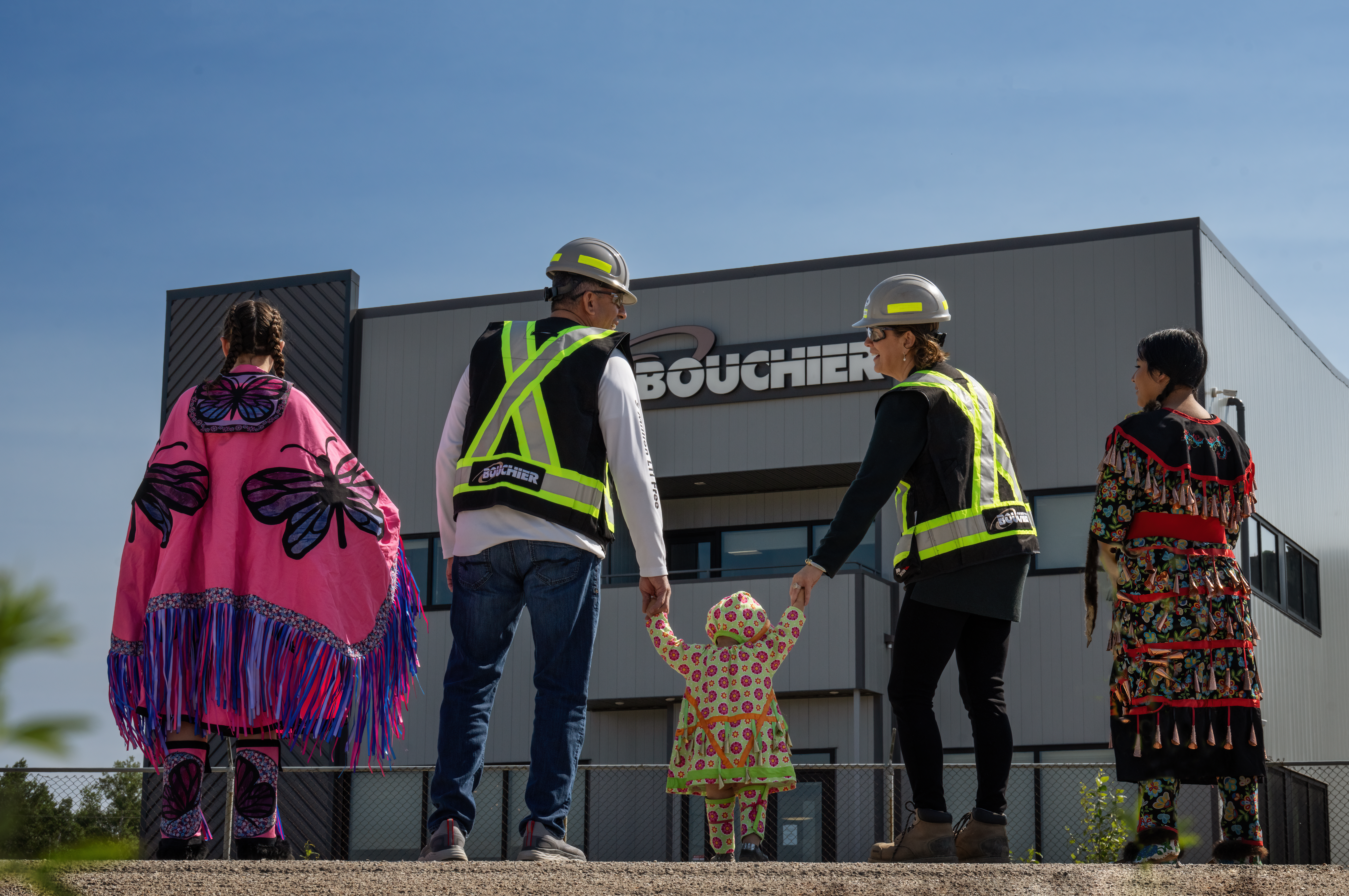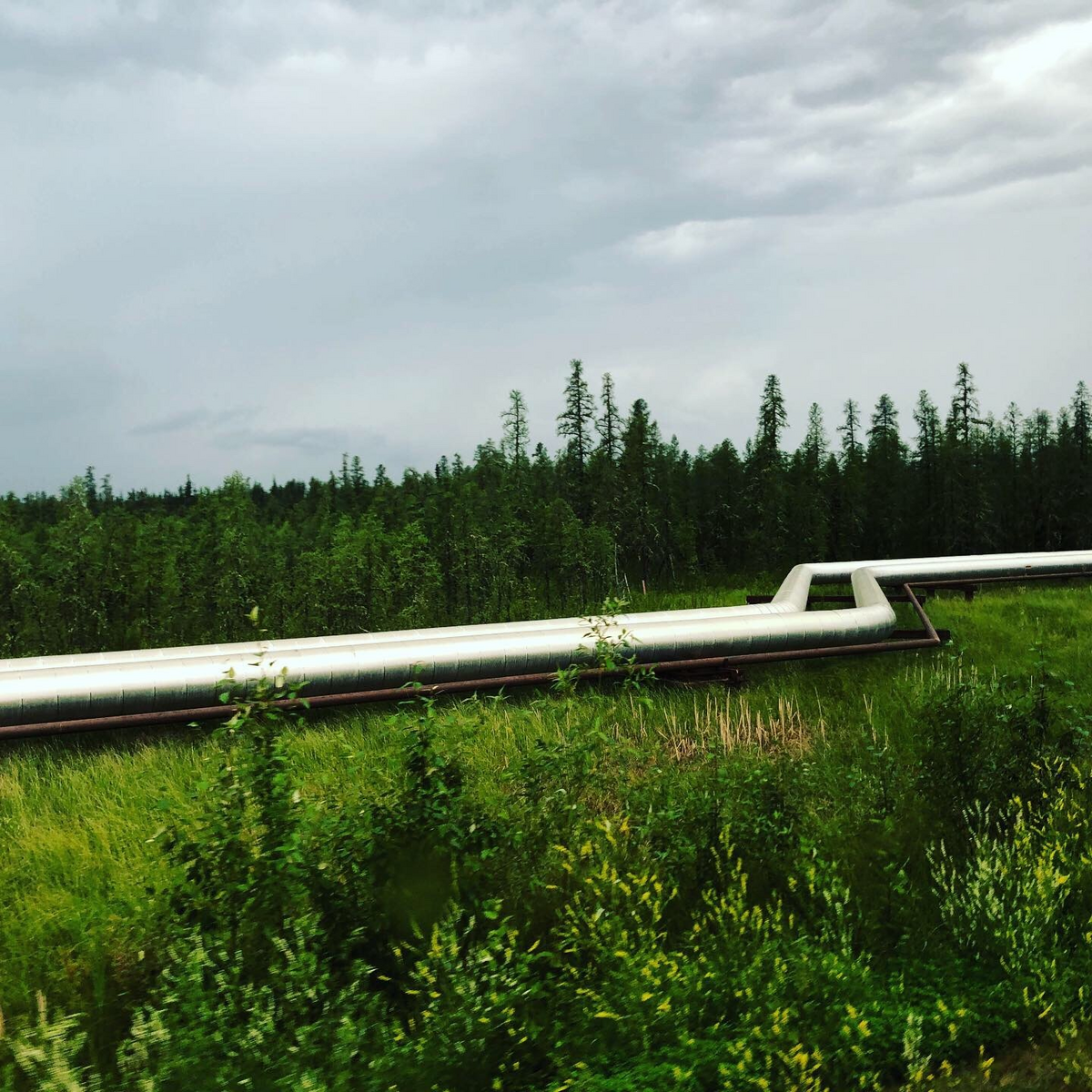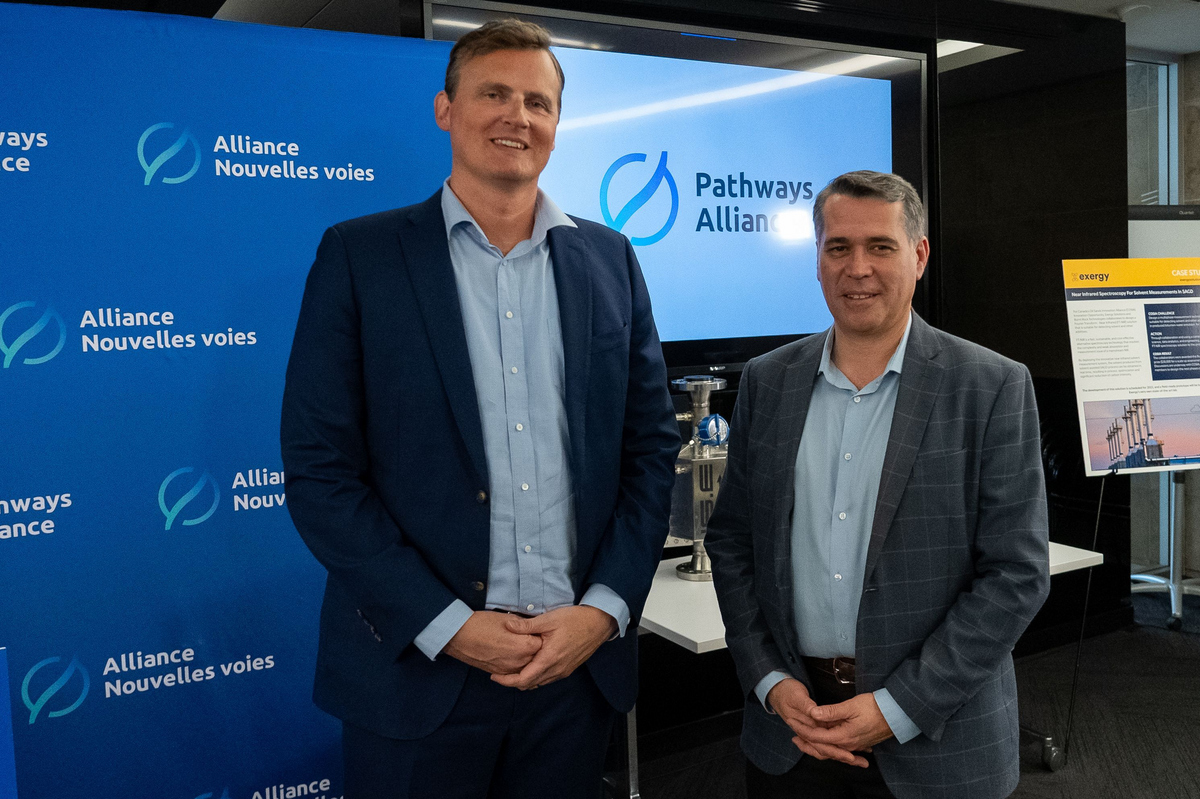‘It’s not just a policy; it’s a practice’ – Taking steps towards economic reconciliation through meaningful partnerships
June 30, 2025

Fort McKay and Janvier are more than 180 kilometres apart in the sprawling boreal forest of northeastern Alberta. But both communities are sharing the experience of increased economic benefits through the growing partnerships with oil sands companies.
“The partnerships we’ve built in the energy sector aren’t just about securing a contract; they’re about creating long-term opportunity, skills development, pride of place, and a stronger future for our people,” says Nicole Bourque-Bouchier, the co-owner and CEO of the Bouchier Group, a Fort McKay-based company that has grown into one of the largest contractors in the oil sands industry.
Bouchier, which started in 1998 with a single bulldozer, now employs 1,400 people – 38 per cent of which self-identify as Indigenous – in three areas. Its civil contracting fleet and employees work at sites for Canadian Natural, Cenovus, Imperial Oil and Suncor. The facilities group supports camps with services including maintenance and renovations. Bouchier also recently added a new logistics division to provide transportation support to clients.
Bourque-Bouchier credits the industry for recognizing the importance of working with Indigenous communities and taking steps towards economic reconciliation through building long-term relationships.
“It’s important to recognize that economic reconciliation isn’t just a policy; it’s a practice. Companies like Bouchier are living proof that Indigenous-led businesses can thrive and lead when given meaningful opportunities,” says Bourque-Bouchier, who was named to the Order of Canada in January. “Our story isn’t just about contracts. It is about leadership, skill building, and creating space for the next generation to rise.”
Bourque-Bouchier cites Imperial as an excellent example of that relationship. Bouchier has worked with Imperial since 2009. The company has more than 150 employees supporting Imperial’s Kearl Lake operation with services including civil construction, facility maintenance and civil projects.
“This contract is a major contributor to our workforce, many of whom are Indigenous and local to the region. These jobs are meaningful and long-term, not just seasonal or temporary,” she says. “Imperial has demonstrated a strong and consistent commitment to partnering with Indigenous businesses. They’ve gone beyond checking boxes. They actively engage, listen, and invest in long-term relationships. As an Indigenous-owned company, we’ve experienced firsthand what real partnership looks like.
“Working with Imperial has allowed us to train and educate our staff and support employment programs that empower Indigenous youth and workers in technical and leadership roles. We have seen growth in the trades as in Kearl facility maintenance, leaders in roads and grounds and technical support in maintenance.”
And ExxonMobil, Imperial’s majority shareholder, values its partnership with Bouchier. The global oil giant honoured Bouchier last year with its 2024 International Diverse Supplier Award for the company’s work with Imperial.
“It’s more than a corporate recognition — it’s a symbol of what’s possible when Indigenous businesses are trusted and empowered to lead,” Bourque- Bouchier says. “This award shines a spotlight on the strength, professionalism, and legacy the Bouchier team members have built over 25 years — and it reflects the contributions of each individual who’s helped get us here.”
Bouchier is one of many Indigenous-owned suppliers for Imperial. But Mike Cecconi, Imperial’s Senior Director of Indigenous Affairs and Socioeconomics, says the company’s partnerships extend well beyond procurement opportunities.
“Imperial’s reconciliation and engagement efforts focus on growing Indigenous business partnerships – exceeding $900 million in Indigenous spend in 2024 –incorporating Indigenous knowledge in our environmental management practices, increasing Indigenous representation in our workforce and enhancing Indigenous cultural understanding,” says Cecconi.
That is reflected in how the company continues to show up through community-centric partnerships across Canada, volunteerism and in-kind donations of needed materials. Teams are also leaning into opportunities for co-development, braiding Indigenous knowledge and western science to drive research and other collaboration spaces.
That strong commitment to working with Indigenous communities and contractors is mirrored driving two hours to the south, where Cenovus Energy has strengthened its ties with the Chipewyan Prairie First Nation over the past two decades.
CP services, which is based out of Janvier, has worked with Cenovus for almost 20 years, providing skilled trade for maintenance as well life safety services such as fire extinguishers and kitchen fire suppression systems to the company’s Christina Lake, Sunrise and Foster Creek operations.
“Our work with Cenovus is a crucial contract for our company – more than 15 per cent of our total workforce works at their sites,” says Dave Czibere, CEO of CP Services. “It’s not the normal company-to-supplier relationship. Cenovus treats us as a true partner. Their management genuinely wants us to succeed and the communities near their operations to benefit.”
That commitment is reflected by the increased amount of procurement and social investments for Indigenous communities and initiatives.
Cenovus has spent more than $5 billion with Indigenous-owned businesses since 2010 and more than $2.5 billion since 2019.
“Investing in Indigenous communities near our operations and ensuring they benefit from Cenovus, is part of how we do business,” says Trent Zacharias, Director, Community & Indigenous Affairs for Cenovus. “Economic participation helps Indigenous communities create employment and generate revenue they can re-invest in education, housing and other opportunities. Our business partnerships are foundational to the deep, mutually beneficial relationships we have built.”
The company also committed $14.8 million in social investments for initiatives related to Indigenous reconciliation in 2024.
This includes the Indigenous Housing Initiative to help Cenovus’s neighbouring Indigenous nations improve their housing conditions. Through this program, Cenovus has spent more than $50 million to build homes in six Alberta First Nations and Métis communities near its oil sands operations: Beaver Lake Cree Nation, Chard Métis, Chipewyan Prairie First Nation, Cold Lake First Nations, Conklin Métis and Heart Lake First Nation. To date, 161 homes have been funded.
Cenovus also delivers an Indigenous Internship Field Program to help enhance employability. The program helps build the capacity of Indigenous individuals and communities by offering hands-on, paid trade experiences, which helps strengthen partnerships with Indigenous communities near its operations.
Launched in 2021 with interns working at Christina Lake and Foster Creek, the program has since grown to include its operations in Sunrise, Rainbow Lake, Edson, Drayton Valley and Lloydminster. In 2024, seven interns graduated from the program. Six secured long-term employment with the company while the other returned to school to continue their education.
Those investments have not gone unnoticed at the Chipewyan Prairie First Nation.
“CP Services was founded by Chief Vern Janvier, who has chosen to work with industry to bring opportunity, prosperity and improve the lives of the Nation’s members through having the means to invest in education, health care and other social infrastructure. It also provides an opportunity for the Nation to be a partner and have a say in the ongoing development in traditional land,” says Czibere. “That’s a vision that our current president Melanie Janvier continues to pursue and we are fortunate to work with Cenovus, which shares those values and is providing us with the opportunities to make those benefits a reality for people in the community.”


